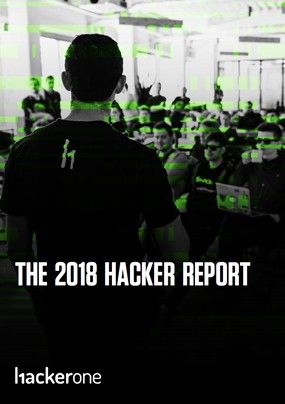The best white hackers earn 2.7 times more than average programmers
 The HackerOne community, which has more than 160,000 hackers registered and which has already paid $ 23.5 million for the found vulnerabilities, has published a report The 2018 Hacker Report . This is the largest ethical hacker survey in history, which was attended by 1,698 respondents. Along with the results there is an interesting statistic.
The HackerOne community, which has more than 160,000 hackers registered and which has already paid $ 23.5 million for the found vulnerabilities, has published a report The 2018 Hacker Report . This is the largest ethical hacker survey in history, which was attended by 1,698 respondents. Along with the results there is an interesting statistic.Key results:
- Awards for found bugs provide a decent life for top hackers. On average, in all countries of the world, the difference in the "salary" of a top hacker and the median average salary of a programmer is 2.7 times, but the situation is different in different countries. For example, in India the difference reaches 16x, in Argentina - 15.6x, in Latvia - 5.2x, in the USA - 2.7x, there is no salary statistics for Russia.
- Money is not the most important motivation of ethical hackers, this is only the fourth most popular (13.1%) reason for the work of hackers. For more hackers, more important is the opportunity to learn technologies and tricks of work (14.7%), the ability to solve interesting problems (14%) and to have fun (14%). Although back in 2016, money was the number 1 cause.
- India (23.3%) and the USA (19.9%) are two world leaders in the number of registered hackers. They are followed by Russia (6.3%), Pakistan (4%) and the United Kingdom (4%).
- Almost every fourth hacker did not inform the company about the found vulnerability, because the company did not provide an opportunity (communication channel) how to report vulnerabilities.
- Almost 58% of all hacking specialists are self-taught. Although 50% studied computer science / programming at the university, and 26.4% studied at school, only 5% said that these classes gave them at least some knowledge useful for hacking. Until now, information security remains a rather rare specialty in universities, but on the Web you can find enough free information for self-education, including full-fledged textbooks on hacking sites (the HackerOne Web Hacking 101 tutorial is distributed free of charge). A great way to self-education is to study reports on real hacks.
- Approximately 37% of survey participants engage in hacking as a hobby in their spare time, but 12% receive at least $ 20k per year from reward programs, and more than 3% earn from $ 100k per year, which is enough for a normal life in any country in the world. 1.1% earn more than $ 350k per year - and such a salary is almost impossible to get on a normal programmer’s job. A quarter of hackers said that remuneration amounts to at least 50% of their income, while 13.7% have a 90-100% annual income.
It is interesting to look at the distribution of cash flows by country. On the left of the chart - companies from which countries paid remuneration. And on the right - the people from which countries received it
')

As we see, Russians are among the leaders and for the year earned $ 1,296,018.
A typical hacker is a young, talented IT professional under 35 years old. Almost half of all hackers have not yet reached 25 years. In 75.1% of the hacking experience is only 1-5 years.
46.7% of hackers work professionally in their field (IS specialists or programmers), and 25.3% are students. About 13% said that they are engaged in hacking full time, that is, more than 40 hours a week.
Interesting statistics on tools that hackers use. Mostly now everyone specializes in a web platform, that is, hacking websites and web applications. So, the most popular tools:
- Burp Suite, an integrated platform for performing tests for web application security, which is included in the Kali Linux hacker OS suite - 29.3%
- Self-developed tools - 15.3%
- Web proxy / scanners - 12.6%
- Network vulnerability scanners - 11.8%
- Fuzzers - 9.9%
- Debuggers - 9.7%
- WebInspect - 5.4%
- Fiddler - 5.3%
- ChipWhisperer - 0.8%
After websites (70.8%), APIs (7.5%) and technologies, where the data of the hacker itself or where it is the user (5%), are followed by a hacking interest. Operating systems are no longer as popular as a hacking target (3.1%), even behind Android applications (4.2%).
Favorite attack vectors are XSS (28.8%), SQL injections (23.1%), fuzzing (5.5%) and brute force (4.5%).
Most prefer to work alone, although many publish the results in their blog to get feedback from colleagues, and read their blogs.
Source: https://habr.com/ru/post/346944/
All Articles